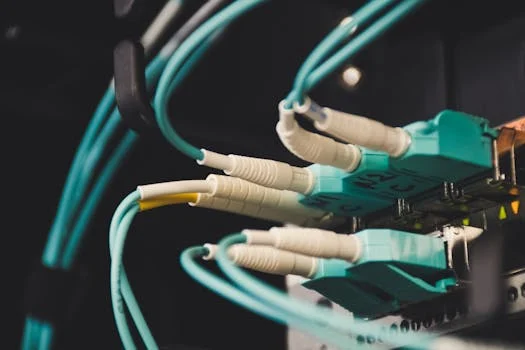Introduction
South Africa’s growing influence in G20 Diplomacy has become a defining element of the country’s international identity. As the nation leads discussions during its G20 Presidency, diplomats such as Zane Dangor are playing a pivotal but often overlooked role. Their work takes place behind closed doors, in meeting rooms, at negotiating tables, and across countless hours of policy preparation. While political leaders make the headlines, it is the diplomats who ensure South Africa’s voice is organized, persuasive, and impactful. Their contributions shape the direction of global economic policy, development agendas, and multilateral cooperation. This article explores ten essential ways these diplomats are guiding South Africa’s leadership on the world stage through strategic, skilled, and thoughtful engagement.
G20 Diplomacy and the Foundation of South Africa’s Global Engagement
G20 Diplomacy provides South Africa with a platform to amplify its global engagement strategy. The G20 represents the world’s major economies and plays a central role in shaping global policies. For South Africa, this is a rare opportunity to champion fairness, development, and multilateral cooperation. Diplomats work to ensure that national interests align with global priorities, reflecting issues relevant to both advanced and developing nations. Their work involves analyzing international trends, drafting policy briefs, and preparing leaders for high-level discussions. Through their efforts, South Africa has strengthened its ability to influence conversations about global financial reform, sustainable growth, and social advancement.
G20 Diplomacy and the Leadership Role of Zane Dangor
A major reason South Africa’s G20 Diplomacy has been so effective is the leadership of Zane Dangor. Known for his strategic sense, negotiation skills, and calm demeanor, Dangor guides key diplomatic operations with precision. He works closely with national teams to craft South Africa’s positions and ensure clarity in discussions. His leadership style is rooted in collaboration, respect, and thoughtful consideration of each country’s needs. Diplomats describe him as a steady presence who brings structure to complex debates. Under his guidance, South Africa’s G20 efforts have gained credibility and recognition, particularly in issues relating to global development, financial inclusion, and international cooperation.
G20 Diplomacy and the Crucial Work of Technical Diplomatic Teams
Behind every major G20 meeting is a team of skilled diplomats and technical experts. These professionals carry out the detailed work that makes G20 Diplomacy successful. They prepare research documents, analyze economic trends, study global challenges, and offer recommendations on negotiation strategies. Their expertise provides a foundation for South Africa’s positions, ensuring they are grounded in evidence and aligned with global realities. Their work requires long hours, precision, and a deep understanding of global systems. Though they rarely appear in public, their efforts shape every meeting, every briefing, and every diplomatic engagement.
G20 Diplomacy and South Africa’s Representation of Developing Nations
A core dimension of South Africa’s G20 Diplomacy is its role as a voice for developing nations. As the only African member of the G20, South Africa carries a unique responsibility. The country advocates for equitable access to financing, technology, and climate support. Diplomats push for reforms that benefit low-income countries and emphasize the importance of inclusive global growth. This representation helps address imbalances in global governance. South Africa brings attention to issues such as rising debt pressures, food insecurity, and access to development funding. Through these efforts, the country strengthens the presence of the Global South within global decision-making structures.
G20 Diplomacy and Navigating Global Economic Discussions
One of the most demanding tasks in G20 Diplomacy is participating in global economic discussions. Topics such as trade policies, financial stability, inflation, energy security, and technological change are constantly evolving. South African diplomats analyze these issues and identify opportunities to position national priorities effectively. Their diplomatic work ensures the country contributes meaningfully to debates on economic recovery and resilience. They also emphasize the need for global financial reforms that support development and stability. Their insights help shape collective global decisions that affect economies around the world, especially in a time of shifting geopolitical landscapes.
G20 Diplomacy and Multilateral Negotiation Skills
Skilled negotiation is one of the most important aspects of G20 Diplomacy. South Africa’s diplomats often mediate discussions between major powers with competing priorities. This requires expertise in negotiation, conflict resolution, and strategic communication. Diplomats listen closely to each country’s concerns, identify areas of overlap, and propose solutions. Their goal is to build consensus without compromising South Africa’s core interests. These negotiations shape major policy agreements and international declarations. Their diplomatic skill ensures discussions remain productive even during moments of tension. South Africa’s ability to foster cooperation is widely respected within the G20 community.
G20 Diplomacy and Coordinated National Policy Approaches
Effective G20 Diplomacy requires strong coordination between diplomats and domestic institutions. South Africa ensures its voice is unified by connecting ministries, economic departments, research institutions, and policy analysts. Together, they shape a consistent international strategy. This coordination allows diplomats to represent positions backed by deep analysis and national consensus. Policy briefs, negotiation instructions, and talking points are prepared through collaboration. This internal unity enhances South Africa’s credibility and influence in global discussions. It also ensures international policy ideas can be implemented effectively at home.
G20 Diplomacy and Strengthening South Africa’s International Profile
Through consistent and effective G20 Diplomacy, South Africa is strengthening its international profile. By engaging proactively in global discussions, the country positions itself as a capable leader. Diplomatic success demonstrates South Africa’s ability to guide conversations on economic reforms, environmental policies, and global development. This enhanced presence supports stronger partnerships with countries across Europe, Asia, the Americas, and Africa. It also helps build trust in South Africa’s commitments and leadership. As global challenges grow more complex, the country’s ability to influence global governance becomes even more significant.
G20 Diplomacy and South Africa’s Vision for Future Global Governance
South Africa’s work in G20 Diplomacy reflects a vision for future global governance rooted in fairness and cooperation. The country advocates for stronger multilateral systems that treat nations equally and support shared progress. Diplomats promote inclusive growth, climate justice, and sustainable development. Their vision encourages greater representation for developing nations in global institutions. This commitment strengthens international relationships and shapes a world order that is more balanced and responsive. Through its diplomatic efforts, South Africa aims to contribute to a future where nations work together to overcome global challenges.
FAQs
Q1: What is the central goal of South Africa’s G20 Diplomacy?
To influence global policy discussions and highlight the needs of developing nations.
Q2: Who plays a key role in leading G20 Diplomacy for South Africa?
Zane Dangor leads major diplomatic efforts and guides strategic engagement.
Q3: Why are behind-the-scenes diplomats important in G20 Diplomacy?
They prepare research, coordinate meetings, and shape negotiation strategies essential for global policy-making.
Conclusion
South Africa’s leadership in G20 Diplomacy showcases the essential role of skilled diplomats and thoughtful strategy. Through the guidance of figures like Zane Dangor and the efforts of dedicated teams, the country has deepened its influence in global discussions. Their behind-the-scenes work drives policy coordination, fosters global cooperation, and strengthens South Africa’s standing on the world stage. As the nation continues its involvement in the G20, its commitment to fairness, development, and inclusive diplomacy will remain a powerful force in shaping the future of global governance.




